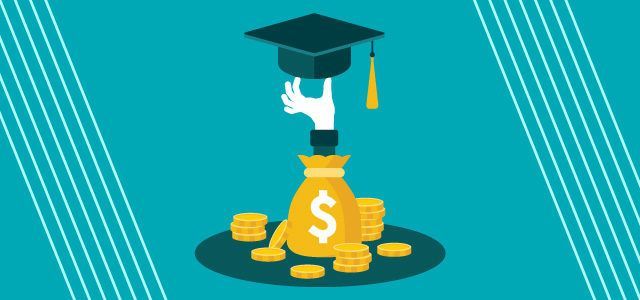Student Loan Limits
Nov 05, 2023 By Susan Kelly
There are limitations to nearly everything, including the amount you can take out for student loans. Limits on student loans depend on a range of factors, such as the kind of loans (federal and private), your time in school, and the amount it would cost to attend your school of preference. It's important to keep in mind that the amount you can borrow doesn't mean that it's the amount you should be borrowing.
You should only get only as much as you imagine being in a position to repay in the conditions of the loan. And the interest rate is an integral part of the calculation. This creates an uncertain landscape that begins with knowing what's on the market. It is important to note that as a result of the recession of 2020 that the U.S. Department of Education has stopped loan payments and waived interest. It also shut down collections. They will resume in the middle of 2022.
Federal Direct Student Loans
Be aware that the maximum amount of each calendar year comprises both unsubsidized and subsidized federal loans. If, for instance, your subsidized loan amount for year one of being a dependent undergraduate student is $3,500, then you can only get $2,000 in loans that are not subsidized for the year. If your subsidized amount is less than $3500, the difference between it and $5,500 could become unsubsidized debt.
The amount you can take out each year and over time in your undergrad years depends on your parents' eligibility to assist you in applying for a Direct PLUS loan. If they're eligible for the loan, the amount you can borrow on your behalf is lower. If they're not eligible because of low credit scores, the ability to borrow is higher. The amounts for independent students indicate a lack of parental support, as do the numbers for professional and graduate students considered independent.
The federal direct PLUS loan is accessible to the parents of undergraduate dependents and to professional and graduate students. PLUS loans don't limit the amount of money that can be borrowed; however, you cannot get more than the price of attending the school you or your child in the case of parents. Cost of attendance refers to fees and tuition such as accommodation, food, books, equipment, and supplies. Equipment, transportation, as well as various other costs.

In contrast to direct federal loans, PLUS loans require an assessment of credit; however, they do not require a specific credit score. The borrower cannot, however, have a bad credit history unless they can agree to become the endorser (cosigner) for the loan or provide extenuating circumstances to justify the negative credit history. Apply for the Federal Direct Parent PLUS loan here. You can also apply for a Federal Direct Graduate PLUS loan here.
Private Student Loans
Private student loans can be obtained from financial institutions like credit unions, banks as well as other institutions of finance. The limitations vary from lender to lender, but typically they are capped at the amount of the school you and your kid attend. Additionally, most private lenders have a maximum amount for loans that cannot be exceeded, regardless of how expensive your school is. Contact your lender in person if you're interested in an individual student loan.
Loan Amounts
One of the most important factors to consider in the context of student loans is the amount you can borrow every year and the overall amount over your college experience. The typical limit for your total for a professional or graduate student was the amount you borrowed (but not yet repayable) when you were a student undergrad. In the same way, the aggregate limit on loans for private loans typically includes amounts borrowed from federal loans.
Your status impacts the federal direct aggregate limit (dependent or not) and your parent's eligibility to obtain the federal direct PLUS loan for parents. If they're ineligible, your aggregate and annual limits will be greater. Any parent PLUS loan cannot be removed from your Federal Direct loan limit. The limit you are allowed to borrow is determined by the extent to which your parents are eligible or not. Remember that aggregate limits aren't lifetime limitations. When you pay off your student loan debt, your limit for cumulative debt is replenished.

Loan Eligibility by Type
The best general rule is to make sure you max out subsidized federal direct loans and then federal direct unsubsidized loans prior to switching into parents PLUS and graduate PLUS loans. With private student loans coming last. You must meet the requirements for every type of loan to be eligible.
-
 Know-how May 17, 2024
Know-how May 17, 2024Joint and Several Liability: Definition, Example, and State Limitations
Joint and several liability guarantee responsibilities that allow many persons to be held individually and jointly accountable for debts or damages.
-
 Mortgages Nov 10, 2023
Mortgages Nov 10, 2023Understanding Clear to Close and Final Stages of Homebuying
The Timeline Clear is a crucial step in preparing for the closing day, ensuring all necessary steps are taken, and a clear to close is established.
-
 Mortgages Jan 27, 2024
Mortgages Jan 27, 2024All About Equity Release
It represents the sum total of a company's profits that have been set aside for future use. Equity is directly proportional to retained earnings; in the event of bankruptcy, a greater retained earnings balance means a larger distribution to investors; and, if the firm does not go bankrupt, a larger retained earnings balance means a larger safety net in the event of financial difficulty
-
 Business Nov 05, 2024
Business Nov 05, 2024How To Measure The Corporate Impact: A Complete Understanding
Emphasizing thorough methodologies for evaluating social and financial impacts, learn how to gauge company impact properly
